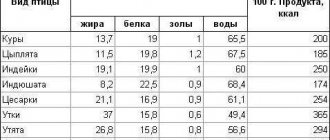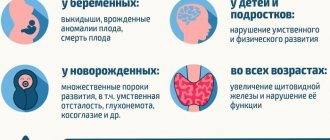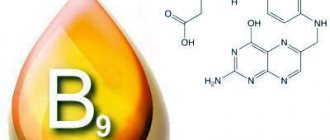Residents of areas far from the sea very often experience iodine deficiency - an extremely important element for health and good functioning of the body. This trace element is a component of thyroid hormones and is involved in the development of all organs and systems: hormones regulate the metabolism of proteins, fats and carbohydrates, the activity of the nervous system, heart and blood vessels.
Article on the topic Eat caviar, snack on shrimp. 8 Foods Containing Iodine
So a lack of iodine affects our health negatively: a person feels a loss of strength, decreased performance, drowsiness, and swelling of the extremities develops. Cholesterol increases and metabolism is disrupted, attention decreases, and mental reactions slow down.
This is why it is so important to get iodine in the right amount. But in addition to iodine, the diet and body must contain elements that facilitate the absorption and assimilation of this important microelement. Such as:
- calcium;
- selenium;
- iron;
- copper;
- magnesium;
- zinc;
- vitamins E, A and C.
There are also foods that interfere with the absorption of iodine. It is better not to combine them with iodine-containing foods within the same lunch. These are cauliflower and red cabbage, turnips, radishes, mustard, rutabaga, and soybeans.
Effect on the human body
The main biological role of iodine is the synthesis of thyroid hormones (triiodothyronine and thyroxine), which perform the following functions:
- stimulate the growth and development of the body, being responsible for the processes of tissue cell regeneration;
- regulate the exchange of vitamins, hormones and microelements;
- increase the production of new red blood cells in the bone marrow (erythropoiesis);
- activate the cardiovascular system (increase blood pressure, increase the frequency and strength of heart contractions, regulate vascular tone);
- potentiate oxygen consumption by tissues;
- control the transport of sodium and hormone-like substances through the cell membrane;
- increase the rate of biochemical reactions in the endocrine ring;
- regulate thermal, energy, water and electrolyte metabolism;
- enhance the oxidation of proteins, lipids and carbohydrates;
- potentiate the formation of phagocytes (blood cells that destroy harmful microorganisms);
- participate in the regulation of a person’s emotional tone (increase cognitive abilities, normalize mental activity);
- enhance the removal of excess fluid from the body;
- improve the functional state of the liver, brain, heart, blood vessels;
- regulate the processes of puberty;
- normalize the menstrual cycle;
- increase the activity of sex hormones, restoring a woman’s reproductive function (the ability to conceive and bear a fetus).
Due to its multifaceted effects on the human body, iodine is classified as a bio- and immunostimulating substance.
Daily norm
The daily need for iodine directly depends on a person’s age, physical condition and individual characteristics of the body. Considering that the microelement is not synthesized by the intestinal microflora, it must be regularly supplied with food or nutritional supplements.
The average daily norm for persons of different age categories is:
- for infants under 2 years old – 50 micrograms;
- for children from 2 to 6 years old – 90 micrograms;
- for children from 7 to 12 years old – 120 micrograms;
- for adults – 150 micrograms;
- for women during pregnancy and breastfeeding – 200 – 300 micrograms;
- for people working with compounds that depress the thyroid gland - 200 - 300 micrograms.
The exact daily dosage of iodine is calculated based on the calculation of 2 - 4 micrograms of the substance per kilogram of body weight.
The upper permissible level of mineral intake is 600 micrograms per day. Exceeding this indicator causes poisoning and intoxication of the body.
If the endocrine system malfunctions, before consuming the mineral, you should consult your doctor regarding the dosage.
What elements are important
To prevent a lack of thyroid hormones and for the coordinated functioning of the pituitary-thyroid gland-body system, a sufficient amount of vital microelements and other substances must be present in the daily menu.
Below is a list of the most important components.
Iodine
Iodine is a substrate for the synthesis of thyroxine and triiodothyronine. Consequently, with a low intake of microelements from food, hypothyroidism develops.
At home, a person can get enough iodine by eating regular food. Pathology develops only when the qualitative and quantitative composition of food is violated.
Selenium
According to scientific data, selenium is necessary for the adequate course of metabolic processes in the tissues of the thyroid gland, protecting the cells of the organ from the effects of damaging factors (toxic substances, free radicals, own antibodies, etc.).
Maintaining selenium in the blood at a certain level, according to scientists, is a key factor in preventing any thyroid diseases.
Zinc
Adding zinc-containing foods or specialized supplements has been shown to increase the release of T3 and T4 into the blood. The effect is realized due to the activation of hormone synthesis processes at the level of ribosomal enzymes.
Without selenium, the thyroid gland will not function adequately, even with a significant increase in thyroid-stimulating hormone levels.
If you have thyroid disease, you should never take supplements with selenium, zinc and, especially, iodine on your own. Such an approach to treatment can lead to negative consequences and only worsen the general condition. It is imperative to consult a doctor! Only a specialist can assess the state of health and prescribe adequate therapy corresponding to the severity of the clinical condition.
Deficiency and excess
The concentration of iodine in the blood varies depending on the season: it decreases in the fall and increases in the spring. However, the thyroid gland absorbs exactly enough of the element to form thyroid hormones. At the same time, excess mineral is removed with urine and saliva.
Interestingly, over the past 20 years, the concentration of iodine in the soil has decreased threefold, as a result of which every third person on the planet has iodine deficiency, and every sixth person is at risk of developing hypothyroidism. A deficiency of the compound in the daily menu is a dangerous phenomenon, since prolonged deficiency provokes a “restructuring” of the function of the thyroid gland. This process is accompanied by an increase in the absorption of the element by the organ, as a result of which its excretion along with urine decreases. After this, adaptation processes are launched aimed at the most economical use of iodine. Such reactions underlie a decrease in thyroid function (hypothyroidism), which leads to a compensatory increase in the “butterfly” (endemic goiter). This condition is the optimal “springboard” for the development of severe thyroid pathologies, including nodules and cancer.
Symptoms of hypothyroidism:
- fatigue, weakness;
- weakening of memory, vision, hearing;
- decreased performance and concentration;
- apathy, drowsiness, mood swings;
- tearfulness;
- decreased blood pressure;
- slowing heart rate (up to 45-60 beats per minute);
- constipation, impaired motility of the digestive tract;
- sweating;
- weight gain;
- swelling;
- irritability;
- violation of thermoregulation, chills;
- menstrual disorders;
- dry skin and mucous membranes;
- hair loss;
- infertility, miscarriages, stillbirths.
The most severe consequences of iodine deficiency in newborns are cretinism, skeletal deformation, paralysis, and deaf-muteness. In view of this, women when planning pregnancy, carrying a fetus and breastfeeding need to carefully control the level of mineral intake in the body.
Causes of iodine deficiency:
- living in endemic regions where the soil and water are “depleted” of the mineral or there is an increased background radiation;
- insufficient consumption of iodine-containing foods;
- taking foods or medications that contain goitrogenic factors (thiourea, thiouracil, thiocyanate, derivatives of polyphenols, aniline and perchlorate) that interfere with the absorption and utilization of the microelement;
- use of drugs containing iodine antagonists (fluorine, manganese, cobalt, bromine, lead, chlorine);
- the presence of foci of chronic infections (tonsillitis, rhinosinusitis, pharyngitis, sinusitis);
- impaired absorption of the element due to a deficiency of zinc, copper, selenium, folic acid, vitamins C, and in the body.
To prevent and eliminate deficiency, the daily diet is enriched with iodine-containing products or complex dietary supplements. Interestingly, the microelement from seaweed is better absorbed than from medicinal analogues.
Remember, to relieve hypothyroidism, iodine preparations are taken with caution, only as prescribed by a doctor, since an overdose of the element is fraught with the development of iodism (aseptic inflammation of the mucous membranes in areas of mineral secretion), iododerma (toxic-allergic skin lesions), and hyperfunction of the thyroid gland.
Other signs of excess:
- tachycardia;
- increased salivation;
- headaches, fatigue;
- numbness and tingling of the skin;
- acne, skin rashes, including allergic ones;
- development of thyrotoxicosis;
- dyspeptic disorders, sometimes with blood;
- reduction in body weight and skeletal strength;
- goiter formation;
- nervousness;
- insomnia;
- lacrimation;
- paralysis, muscle weakness.
A single dose of iodine in excess of 500 milligrams can lead to direct poisoning. The first symptoms of intoxication are vomiting, brown skin discoloration, stool upset, severe abdominal pain, increased body temperature, and the appearance of a metallic taste in the mouth. If this condition is not stopped, death can occur due to irritation of nerve endings.
Contraindications for taking iodine supplements:
- increased thyroid function (hyperthyroidism);
- suspicion of thyroid cancer;
- Dühring's dermatitis;
- toxic goiter;
- radioactive iodine therapy;
- toxic thyroid adenoma;
- individual intolerance to the mineral.
Remember, increased iodine intake due to autoimmune diseases can aggravate hypothyroidism and reduce the pharmacological properties of thyroid medications.
Causes of hypothyroidism
The thyroid gland produces hormones that can affect almost all cells of the human body. The organ is controlled by the anterior pituitary gland, which, by secreting thyroid-stimulating hormone, corrects the production of thyroxine (T4) and triiodothyronine (T3).
The pituitary gland itself is located in the zone of influence of the hypothalamus, the interaction is carried out through releasing factors.
Failure at any level can lead to serious disorders and the appearance of signs of hypothyroidism (due to a decrease in the synthesis of T3 and T4). In 80% of cases, the pathology lies in the thyroid gland itself. The main reasons for the failure are:
- insufficient intake of iodine into the body;
- genetic defects;
- surgical interventions;
- use of medications that have a thyreostatic effect;
- Hashimoto's thyroiditis (severe autoimmune disease).
When the thyroid gland is insufficient, the metabolism in the body is disrupted, the growth rate decreases and the condition of the skin and hair, as well as subcutaneous fat, worsens. Body temperature gradually drops, obesity develops, constant fatigue, and decreased tolerance to physical and stress stress.
Natural sources of iodine
With a balanced diet, the daily need for iodine is met through foods of plant and animal origin.
In addition, some part of the element (up to 25% of the daily value), depending on the place of residence, enters the body with air and water. Table No. 1 “Natural sources of iodine”
| Product name | Iodine content in 100 grams of product, micrograms |
| Dried seaweed (kelp) | 2500 – 3000 |
| Cooked seaweed | 300 |
| Squid | 290 |
| Feijoa | 70 – 250 |
| Salmon, pollock | 200 |
| Hake, pollock, haddock | 150 – 160 |
| Blue whiting, cod, pinniped meat | 130 |
| Shrimp, oysters, crabs | 90 -100 |
| Perch | 65 |
| Rye bran | 60 |
| Pink salmon, perch, catfish, tuna, catfish, capelin, flounder, carp, salted herring, pike perch, pike | 50 |
| Mackerel, anchovies | 45 |
| Salted herring | 40 – 60 |
| Egg yolk | 35 |
| Champignon | 18 |
| Dairy and fermented milk products | 8 – 18 |
| Greens, legumes, vegetables | 6 – 15 |
| Cereals, fruits, berries | 2 – 10 |
In addition, good sources of the element are Himalayan salt, apple seeds, iodide and iodine-bromine mineral waters. In small concentrations (up to 10 micrograms per 100 grams of product), the mineral is present in all fermented milk products, garlic, feijoa, persimmons, radishes, eggplants, potatoes, spinach, sorrel, asparagus, grapes, strawberries, onions and green onions.
During culinary processing or long-term storage, the iodine content in products decreases significantly. Thus, when cooking fish, meat, cereals, legumes, 45–65% of the microelement is lost, when baking bread – 70–80%, when boiling milk – 20–25%, when boiling potatoes and other vegetables “in their jackets” – 30–40 %, and in crushed form - 45-50%.


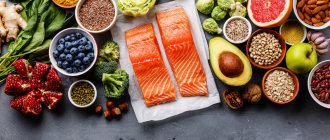
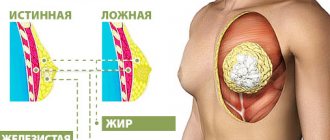
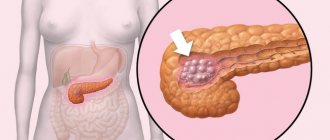
![Selenium [converted]-04-1.jpg](https://idiev.ru/wp-content/uploads/selen-preobrazovannyj-04-1-jpg-330x140.jpg)
